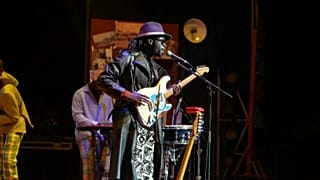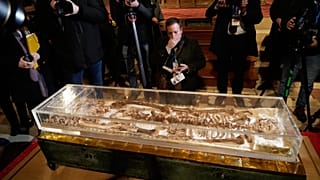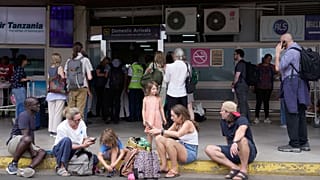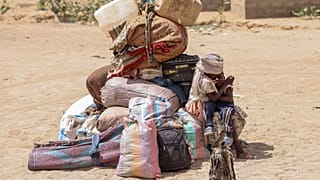Kenya
This rare event — opening a tabernacle made of wooden poles and roofed with iron sheets — illustrates the Rastafari's expanding ranks in Kenya, according to members of this congregation.
Kenya only recently accepted Rastafari as a legitimate religion.
The turning point was in 2019 when a schoolgirl was expelled for refusing to cut off her dreadlocks, a symbol of her religion.
The High Court, then the Supreme Court ruled that Rastafari was a legitimate religion which should be protected.
Rastafarians are members of a movement launched in 1930 with the coronation of Ethiopia's of Ras Tafari Mekonnen as Emperor Haile Selassie I.
Rastafarians believe Selassie was the final incarnation of the biblical Jesus.
For Rastafarians Ethiopia was a symbol of pride for its unbroken resistance to colonizers and Selassie was Jah, the deity.
Selassie was removed by a 1974 coup by a military junta. He died a year later. But the Rasta movement inspired by his rise to power continues in countries ranging from the United States to Ghana.
In Kenya, the Rastaferi is set up under three “mansions” or branches: Nyahbinghi Bobo Ashanti and The Twelve tribes of Israel.
The “mansions” represent small groups of Rastafarians who meet to worship together in semipermanent structures made of poles and roofed with iron sheets.
Rastafarian Fedrick Wangai, aged 26, explains why he turned to the movement.
He says: "As for me I grew up in a Christian foundation which led me to so much questioning of the faith because it was made by the white man which is the colonial master who colonised my forefathers. Growing up for me in that religion was very difficult for me because religion as I can say brought division to we the Black people."
Rastafarians around the world have a reputation for their unique Afrocentric spirituality, and they are generally known to be peace advocates. They oppose oppression and gravitate to music and art. The Jamaican reggae singer Bob Marley was a famous Rastafari.
Christine Wanjiru is also a member of Rastafari congregation.
She says Rastafarians used to be openly discriminated against in all walks of life.
"Most people never saw Rastafari as a good thing or a spiritual thing. We faced a lot of trials and tribulations back then. From family members to the government, the police, all round. Actually even being discriminated, not being employed and lack of jobs and all that. But we endured and we are here today. Today Rastafari is better and more brethren have received this light and have come to Rastafari. In Kenya we have so many Rastafari from all the mansions," says Wanjiru.
There are still challenges, including those that stem from misunderstandings about the religion. Across east Africa, Rastafarians are often stereotyped as lazy and indulging in prohibited substances like marijuana.
Known to Rastafarians as ganja, marijuana is an important item in religious ceremonies.
Ng'ang'a Njuguna is a Rastafari Elder in Nyabingi Mansion:
"Rastafari is not a religion per say, it is a way of life. It is a spiritual way of life because according to the elaboration of Haile Selassie what is religion, he says religion are rules and regulations which were set to guide people so they can grow in spirituality. So religion was not an end in itself it was meant to help people grow to the spiritual level. That is why Rastafari are spiritual people. That is why we connect with nature, we connect with animals, we connect with every living being because Rastafari is all about the spiritual world."
He says the way the Rastafari live appeals to younger people.
"One thing we have realised is that we have very many people who are ready especially the young generation. They are coming up with that fire, they like how Rasta people carry themselves, how Rastafari people live; like our diet, art and skills. And also because this generation is like a fourth generation. Those of ages of around 20 are like our forefathers who have reincarnated again and the war they were fighting that time is the same war we are fighting this time. So it is like the same spirit coming up and looking for the positive way and the only positive way they are identifying with is Rastafari," says Njuguna.
It is unclear how many people identify as Rastafari in Kenya, a country dominated by Christians and Muslims.













02:38
Fasting together: Ramadan and Lent in Sierra Leone’s spirit of harmony
Go to video
Kenya starvation cult preacher Paul Mackenzie charged over 52 more deaths
01:25
Cuba's Santeria priests ask for peace as Cuba-US tensions rise further
01:38
Streamer IShowSpeed rallies Benin on Africa tour
01:00
Japan: 100 worshippers endure icy waters for Shinto ritual in Tokyo
02:19
Thousands gather to mark Benin's Vodun Days showcasing local culture